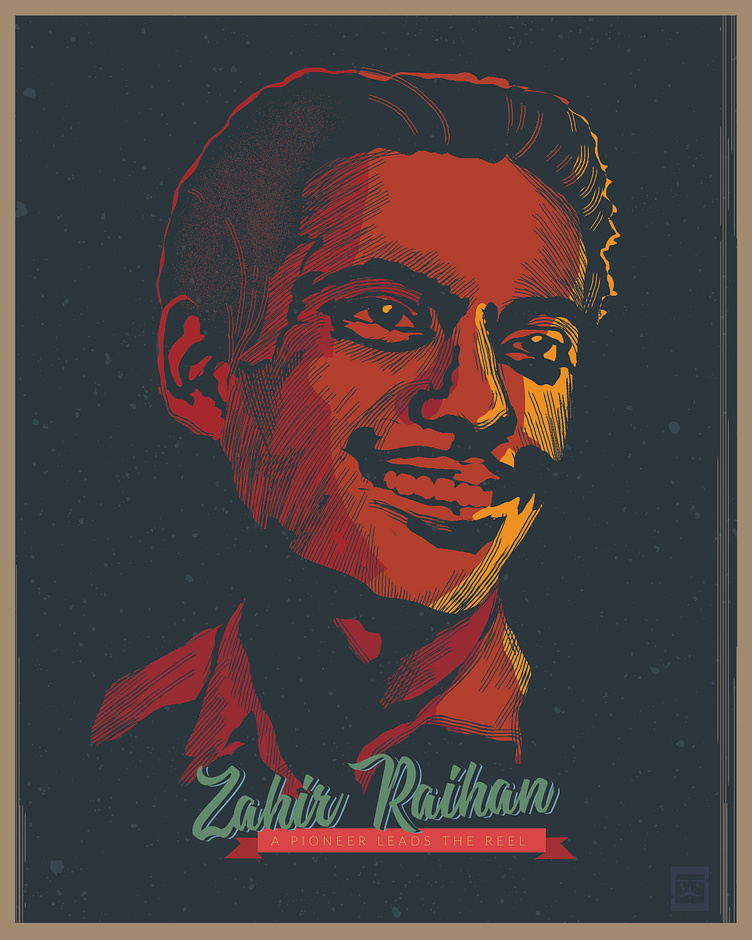Zahir Raihan || Vintage Poster Portrait
Zahir Raihan, born as Mohammad Zahirullah, was a prominent Bangladeshi filmmaker, writer, and human rights activist. He was born on August 19, 1935, in Feni, Bengal Presidency, British India (now Bangladesh), and his contributions to the Bangladeshi film industry have made him an iconic figure.
Raihan began his career as a journalist and worked for various newspapers and magazines in the 1950s. He was involved in the Language Movement of 1952, which played a crucial role in establishing the Bengali language as one of the official languages of Pakistan (now Bangladesh). His involvement in social and political issues influenced his later works.
In the early 1960s, Raihan ventured into filmmaking and directed his debut film, "Kokhono Asheni" (1961). He gained critical acclaim for his second film, "Stop Genocide" (1971), which was a documentary about the atrocities committed during the Bangladesh Liberation War. The film played a significant role in raising international awareness about the genocide.
One of Raihan's most notable works is the film "Jibon Theke Neya" (1970), often regarded as a masterpiece of Bangladeshi cinema. The film depicted the socio-political issues prevalent in East Pakistan (now Bangladesh) and highlighted the oppression faced by the common people. It remains a significant landmark in the country's film history.
Apart from his filmmaking career, Raihan was a prolific writer. He penned several novels, short stories, and articles, addressing various social issues. His works often explored themes of inequality, human rights, and the struggle for freedom. He had a distinct literary style that resonated with the masses and reflected the realities of Bangladeshi society.
Raihan's dedication to human rights activism led him to become involved in various organizations. He served as the General Secretary of the Bangladesh Film Directors' Association and was actively associated with the Bangladesh Shilpakala Academy (National Academy of Fine and Performing Arts).
Tragically, Zahir Raihan went missing on January 30, 1972, while trying to locate his brother, Shahidullah Kaiser, who was abducted and killed by the Pakistani army during the Bangladesh Liberation War. His disappearance remains a mystery to this day, and he is presumed to have been a victim of enforced disappearance. Despite his untimely disappearance, his legacy lives on, and he is remembered as one of the most influential figures in Bangladeshi cinema and literature.
